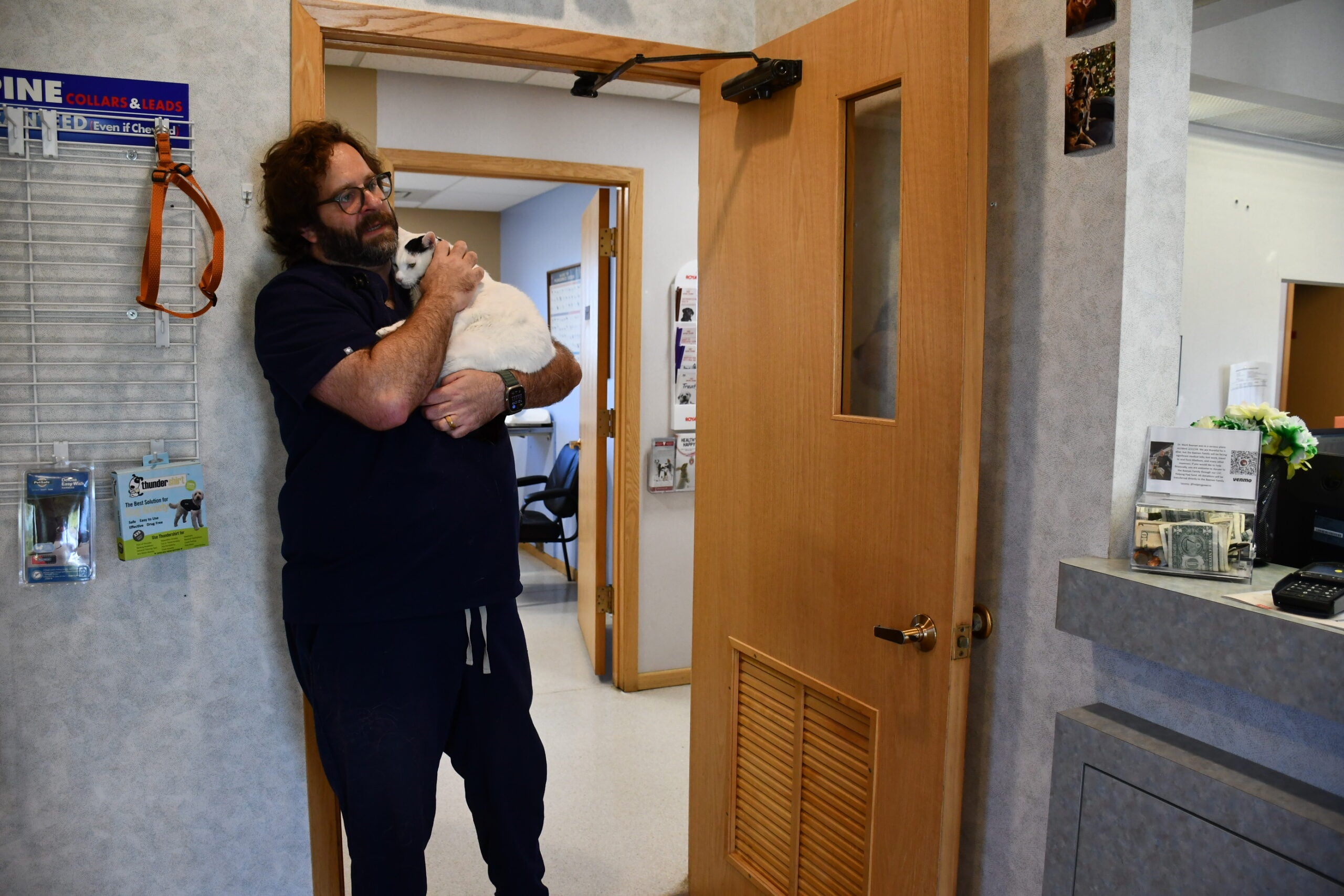Many homes have more than one pet, and they often arrive at different times. Larry Meiller learns how to best introduce a new companion to an existing pet.
Featured in this Show
-
Advice To Owners: Pay Attention To Health, Safety At Dog Park
For dogs, a romp at the dog park can be the equivalent of getting together with a group of friends and having fun.
But although trips to dog parks can be exciting, it’s important to make sure that people and their canine companions stay safe and healthy, according to some animal behavior experts.
Dr. Sandi Sawchuk, a professor of veterinary medicine at the University of Wisconsin-Madison School of Veterinary Medicine, said that when a dog spends time at a dog park, there is a much greater risk of exposure to a variety of health and safety risks.
Keeping Dogs Healthy
“When any dog is visiting a dog park, you really need to hike up your preventive care — which means that they’re up to date on all of their vaccinations,” said Sawchuk.
Because of the risk of exposure, puppies that haven’t received all of their shots shouldn’t be at a dog park, Sawchuk said.
In addition, some shots outside of the standard regimen should be given to dogs that will be in contact with all of those potential playmates at the dog park — for example, shots for kennel cough, or bordetella.
“We see a lot of dogs that will develop a cough syndrome after being exposed to other dogs. Even though they’re not in a kennel, they’re still sharing saliva while they’re playing,” Sawchuk said.
Another illness that can be transmitted easily in a dog park setting is leptospirosis. Sawchuk explained that leptospira bacteria spread through the urine of wildlife.
“Especially if you’re in a dog park that has any standing water or anything, it’s very important to keep your dog current on that vaccine,” Sawchuk said, adding that the shot for that is annual.
In addition to communicable diseases, Sawchuk said that parasites can be transmitted from one dog to another easily during play at a dog park. She said that once at the UW Vet School, several dogs came in with giardia. It turned out they had all recently visited the same dog park.
“You start getting the environment infected, and it’s really easy for dogs to pick up things like (giardia),” Sawchuk said.
In addition, since there is no preventative measure to account for that particular parasite, it’s important to be aware of the risk and make sure a pet that shows symptoms gets treatment.
Flea and tick control might not be on pet owners’ radar in the middle of a Wisconsin winter, but Sawchuk said that even when temperatures reach the low 30s, deer ticks are active and hungry. She recommends year-round flea and tick prevention to keep dogs safe.
Keeping Dogs (And Owners) Safe
Besides the risk of exposure to pests, parasites and infections at the dog park, there are also concerns about aggression and other behavioral problems.
“My little sound bite that I like to use when I’m talking about dog parks is that ‘Dog parks are places for social dogs to go, not a place to socialize your dog,’” Sawchuk said. “It’s very different.”
Sawchuk said that a dog with any kind of anti-social tendencies or who reacts out of fear around other dogs or people “should not be in that crazy environment.”
Dr. John Ciribassi agrees. He’s a doctor of veterinary medicine, as well as a board-certified veterinary behaviorist.
“Personally, I’m a fan of dog parks … It’s a great time, and a chance to be a dog and run around. But dog parks aren’t for every dog,” Ciribassi said.
Some dogs have personalities that just won’t do well in that situation, he said, meaning the dog won’t enjoy the experience. In addition, it puts other dogs and their owners at risk.
Instead of taking dogs with fear or aggression issues to the dog park, Sawchuk said those animals should be introduced to dogs who can serve as therapy dogs in a controlled setting. The goal is to find other canines that “will not react when your dog reacts,” she said.
Unfortunately, not all pet owners make good decisions about whether their dog is a good candidate for the dog park. Sawchuk said that before taking a dog into that setting, it’s important to know that it will respond to a recall command.
“You may have a dog that’s really friendly, but that dog over at the other side (of the park) is not wanting to play. So you need to be able to call your dog back to you,” Sawchuk said.
Sawchuk also said not to forget about the needs of dogs that are older or, for whatever reasons, need gentler conditions. If a dog has arthritis, or perhaps is dealing with limited eyesight, it would be better to find other opportunities for play and exercise.
Sawchuk also mentioned that she has found a smartphone app called Dog Park Assistant to be very helpful. Currently priced at 99 cents, she said one useful function is that it can locate a nearby dog park when traveling. But what she really likes about the app is that it provides videos that demonstrate different caution behaviors that dogs exhibit and offers suggestions on how to deal with them.
The behavioral resources on the app are so good, Sawchuk said, that she has her veterinary students watch them. She said they are equally useful for owners.
“I have learned so much watching them,” she said.
Episode Credits
- Larry Meiller Host
- Judith Siers-Poisson Producer
- John Ciribassi DVM, DACVB Guest
- Dr Sandra Sawchuk Guest
Wisconsin Public Radio, © Copyright 2025, Board of Regents of the University of Wisconsin System and Wisconsin Educational Communications Board.



